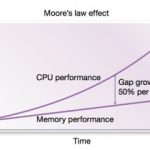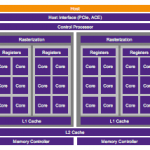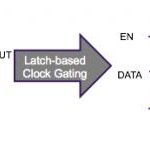You can save a lot of power in a design by gating clocks. For much of the time in a complex multi-function design, many (often most) of the clocks are toggling registers whose input values aren’t changing. Which means that those toggles are changing nothing functionally yet they are still burning power. Why not turn off those clock… Read More
Breakfast with Aart de Geus and the Foundries!
Being the number one EDA and the number one IP company does have its advantages and the resulting foundry relationships are a clear example. One of the DAC traditions that I truly enjoy is the Synopsys foundry breakfasts. Not only does Synopsys welcome scribes, they reserve a table up front for us and Synopsys CEO Aart de Geus has been… Read More
Bluetooth 5 IP is Ready for SoC Integration
Bluetooth®, WiFi, LTE, and 5G technologies enable wireless connectivity for a range of applications. While each offer unique features and advantages, designers need now to decide which protocol to integrate in a single chip after having test the market by using wireless off-chip solutions. Bluetooth 5 builds upon the success… Read More
Samsung, Synopsys and Qualcomm at DAC
I’m a user of many Samsung products as my family has Samsung Galaxy smart phones and my MacBook Pro uses Samsung SSD for storage, so at DAC I attended a breakfast panel with presenters from Samsung, Synopsys and Qualcomm. This was the second day of DAC and they served us breakfast, and with the big names on the panel the room was… Read More
A Functional Safety Primer for FPGA – the White Paper
Following up on their webinar on functional safety in FPGA-based designs, Synopsys have now published a white paper expanding on some of those topics. For those who didn’t get a chance to see the webinar this blog follows the white paper flow and is similar but not identical to my webinar blog, particularly around differences between… Read More
HBM offers SOC’s dense and fast memory options
Dual in-line memory modules (DIMM’s ) with double data rate synchronous dynamic random access memory (DDR SDRAM) have been around since before we were worried about Y2K. Over the intervening years this format for provisioning memory has evolved from supporting DDR around 1995, to DDR1 in 2000, DDR2 in 2003, DDR4 in 2007 and DDR4… Read More
Prototyping GPUs, Step by Step
FPGA-based prototyping has provided a major advance in verification and validation for complex hardware/software systems but even its most fervent proponents would admit that setup is not exactly push-button. It’s not uncommon to hear of weeks to setup a prototype or of the prototype finally being ready after you tape-out. … Read More
Synopsys Opens up on Emulation
Synopsys hosted a lunch panel on Tuesday of DAC this year, in which verification leaders from Intel, Qualcomm, Wave Computing, NXP and AMD talked about how they are using Synopsys verification technologies. Panelists covered multiple domains but the big takeaway for me was their full-throated endorsement of the ZeBu emulation… Read More
A Functional Safety Primer for FPGA – and the Rest of Us
Once in a while I come across a vendor-developed webinar which is so generally useful it deserves to be shared beyond the confines of sponsored sites. I don’t consider this spamming – if you choose you can ignore the vendor-specific part of the webinar and still derive significant value from the rest. In this instance, the topic is… Read More
Checking Clock Gating Equivalence the Easy Way
Synopsys just delivered a Webinar on using the sequential equivalence app (SEQ) in their VC Formal product to check that clock-gating didn’t mess up the functional intent of your RTL. This webinar is one in a series on VC Formal, designed to highlight the wide range of capabilities Synopsys has to offer in formal verification. They… Read More











